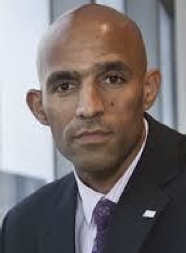
by John Rice
As America transitions to a new administration, there is mounting fear that Trump’s policies will put the American Dream even further out of reach for blacks, Hispanics, Asians, and other minorities who will soon be more than 50% of the U.S. population.
But as those we celebrate during Black History Month—Rosa Parks, Thurgood Marshall, Martin Luther King, and so many others—have taught us, in the face of great adversity, we stand up and we get to work.
We must invest in our young high achievers of color—those who overcome tremendous obstacles to get to college and aspire to help others to follow in their footsteps. Developing these graduates into high-impact job creators, social entrepreneurs, political leaders, and philanthropists should be an obvious priority if we want to reduce inequality, improve social justice, and provide all young people with confidence that they can live happy, long lives.
Historically, the vast majority of philanthropic dollars and policy prescriptions relating to minority youth have focused on minimizing bad outcomes, like incarceration and dropping out of high school. Of course we must attack the drivers of bad outcomes more aggressively, but when virtually no one is talking about maximizing the best outcomes, it means we are perpetuating what George W. Bush called the “soft bigotry of low expectations.”
We declare victory when a lower income kid lands a stable job or gets a college degree. He is deemed “okay” because he is likely to avoid the bad outcomes presumably befalling many of his peers. Additional trajectory beyond “okay” is considered completely under his control.
There are many reasons this line of thinking is troublesome. Foremost is that the same people declaring victory are setting a very different standard for “okay” when it comes to their own children.
These individuals double down on their own kids when they land in college and at every stage after that, leaning on friends for fast-tracking early career jobs and insider recommendations for graduate school admissions, connecting them to mentors, and so on. (For the complete list, look at what Donald Trump has done for his own kids.)
As they know perfectly well, graduating from college is not the end goal—it’s a jumping-off point. To that end, we do a great disservice to our country when we declare “mission accomplished” when a minority kid gets a degree.
The story of Raquel Hardy, profiled on NPR’s This American Life, illustrates the problem. After attending a South Bronx public high school in the poorest congressional district in the U.S., Hardy earned a scholarship to Bard (a top-50 liberal arts college), graduated with a strong academic record, and later landed a job at a secondary school not far from where she grew up.
On the surface, Hardy is the success story that philanthropists say demonstrates the power of a college education in plucking young people from the fringes of poverty. But this declaration of victory is premature.
Take a moment to ask Hardy about her experience, and she’ll tell you a different story. As it turns out, Hardy actually aspired to a different career path—at least until she flubbed her interview for a gateway position at a major New York law firm. As she puts it, “Even though I got my foot in the door by having a good resume and maybe giving a good phone interview, when I get in there, I’m like, ‘I don’t deserve this. The pay grade salary was above what I deserved, and this is more money than either of my parents have ever made probably.’…And so how could you convince somebody that you deserve it when you don’t even believe it yourself? It’s a reoccurring theme in my life.”
A college degree may have opened up many new career pathways for Hardy, but it did not give her a genuine sense of confidence that she belonged in those pathways.
Every day, countless scores of young people like Raquel Hardy quietly fall off the leadership track—not because they lack the talent, ambition, or determination, but simply because they don’t get the “playbook” and, importantly, the confidence that comes from the informal coaching their more privileged white peers receive—by default—from their families and friends at every developmental stage. Even internships, a powerful tool for gaining experience, recognition, and a resume boost, are frequently obtained through connections with these same family and friends. It’s no wonder African-Americans, Latinos, and Native Americans hold only 8% of senior leadership positions in this country, even though they represent nearly 30% of all college students today.
Fixing the systemic failures that lead to senseless deaths and strip millions of the hope that their lives can get better requires bold solutions. To get there, we must fight for reforms in policing, health care, and K-12 education. We must also prioritize building a critical mass of minority leaders who can catalyze the changes we all desire in our institutions and communities. We must invest in formalizing for minorities the same “playbook” that privileged white families have been sharing informally for generations. We know it requires setting higher expectations. We also know it works.
Today’s young leaders are tomorrow’s job creators, affordable housing investors, judges, charter school funders, career mentors, and role models. By empowering them, we can create a multiplier effect that reverberates across our communities and narrows the gaps in economic power and political influence that enable institutional racism to persist and the American Dream to remain elusive to this very day.
Only then will the American Dream be within reach for all.
John Rice is founder and CEO of Management Leadership for Tomorrow, and former member of Obama’s Advisory Commission on Educational Excellence for African Americans and the President’s Board of Advisors on Historically Black Colleges and

Be the first to comment